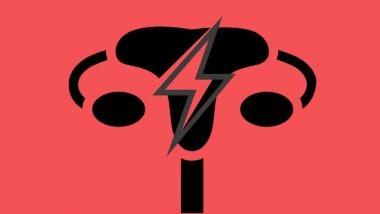Endometriosis, a painful menstrual condition, affects an estimated one in ten women – approximately 176 million worldwide — in their reproductive years according to Endometriosis.org. This enigmatic illness doesn’t have an established cause or cure, but genetics have been largely blamed for it. But a recent revelation researchers at the Fred Hutchinson Cancer Research Center in Seattle, the USA point to a link between sexual and physical abuse in childhood and endometriosis in adulthood. The study published in the Journal of Human Reproduction concluded that women suffering from severe to chronic sexual and physical abuse had a 79 percent elevated chance of endometriosis.
The purpose of the study titled Maltreatment during childhood: a risk factor for the development of endometriosis? was whether sexual, physical and emotional abuse and neglect is associated with the diagnosis of endometriosis. Symptoms of endometriosis such as chronic pelvic pain, fatigue and depression are often correlated with maltreatment in childhood just like the immune reactions to the disease are. The researchers opine that these factors show a link between childhood maltreatment and endometriosis.
What Do Studies Say So Far?
There is a growing body of evidence that links childhood abuse to chronic illnesses like diabetes, cardiovascular diseases, depression, endometriosis and other gynaecological illnesses. Abuse in childhood and adolescence is quite common, and it takes a large toll on the emotional and physical health of the individual. Sexual and physical abuse may change the neuroendocrine-immune processes, which may increase the risk for endometriosis and other non-infectious gynaecological disorders.
It is believed that abuse and the associated psychological stress causes a suppression of the immune system. This leaves the woman more susceptible to endometriosis and uterine fibroids. Apart from this, stress also causes changes in the reproductive hormones, which also leads to gynaecological diseases. It's telling that women who have been victimised seek medical care twice as often compared to non-victims.
What Did The Study Reveal?
The researchers recruited women with endometriosis and control women for the study. They were given a Childhood Trauma Questionnaire to evaluate their degree of maltreatment in childhood. The results showed that women who had endometriosis reported more instances of sexual abuse, emotional abuse, emotional neglect and inconsistency experiences than control women. Dr Holly Harris, the lead author of the study, said that the risk of the diseases increases with the severity of the abuse.
The study concluded that a link between childhood abuse needs to be considered in women with endometriosis. It says that since there are effective strategies to avoid the long-term effects of child abuse, the study urges healthcare professionals to understand their patients’ experiences a little better to give them the right treatment.
Are All Endometriosis Sufferers Abused in Childhood?
While the revelation is unsettling to say the best since it is widely believed that child sexual abuse leads to psychological and emotional repercussions in adulthood life, it’s wrong to assume that all women who have been abused develop endometriosis, according to Dr Harris. Rather, the study shows that both abuse and endometriosis are common.
The study also doesn’t say that abuse drives endometriosis. It could mean bad childhood experiences could result in poor health outcomes. Many people with a history of abuse that result in negative health impacts throughout their lives. Dr Harris also adds that while abuse is common in women, the researchers don’t want to highlight this as only a woman’s issue.
(Research: Maltreatment during childhood: a risk factor for the development of endometriosis?; Sexual and physical abuse and gynecologic disorders; Inflammation and Early-Life Abuse in Women)
(The above story first appeared on LatestLY on Jul 18, 2018 01:33 PM IST. For more news and updates on politics, world, sports, entertainment and lifestyle, log on to our website latestly.com).













 Quickly
Quickly






















